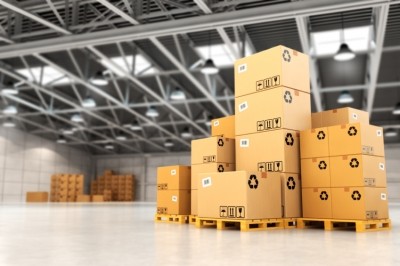FoodDrinkEurope demands EU action to relieve supply chains

The industry body, which is made up of 4.7 million workers and 294,000 European businesses, said it had identified five pressure points putting a particular strain on the food supply chain. It has written to Commission President Ursula von der Leyen calling for action.
Support the food sector workforce
First, it has asked the EU to support the food sector worldwide, including factory workers, fork-lift and lorry drivers, by addressing the risk of labour shortages caused by many of them being unable to follow guidance to stay at home, facing travel restrictions and quarantine at borders, or looking after children.
“Given their essential role to maintain food security in Europe, we urge the Commission to provide EU guidelines to Members States to establish harmonised protocols for food sector workers to continue their work safely, where they are fit and able, just as workers in the medical sector have also been given special dispensations and privileges,” FDE wrote.
Recognise the entire food supply chain as ‘essential’
It also wants the EU to recognise the entire food chain as ‘essential’. “We are aware that different Member States have different interpretations of what may constitute an ‘essential’ sector and the measures to keep the food value chain in full operation,” it said. “We urge the Commission to impress on all Member States the essential importance of the food sector and the special measures needed to keep the food supply chain functioning in all of its aspects.”
Unblock transport bottlenecks
With members reporting long delays at borders as lorries are either delayed or prevented from crossing borders entirely, it strongly advised the “harmonisation of border crossing protocols across the EU in order to maintain a fully functioning Single Market and to avoid transport bottlenecks”.
Support struggling businesses
Ninety-nine percent of the EU’s food and drink businesses are small and medium-sized enterprises (SMEs). The coronavirus pandemic is threatening the continued existence of many of these businesses, the body warned, adding that food business operators have reported a significant fall in demand along with general delays in their supply chains.
“We urge the Commission, in collaboration with Member States, to develop comprehensive emergency measures for the food sector, to minimise the financial impact on food businesses, maintain jobs and to help re-build the economic sustainability of the sector over the long term,” it wrote. “We also count on the Commission to facilitate a flexible and pragmatic regulatory environment which supports vulnerable businesses in these times of crisis. For instance, flexibility around the implementation of state aid rules and certain fiscal support could be crucial to cope with impact in the Member States."
Facilitate global trade
Finally, it demanded assistance for companies whose supply chains have been severely disrupted by the pandemic.
“Some of them have not been able to ship merchandise for two months, while others are experiencing noticeable delays from their usual clients. The European food and drink industry is also reliant on ingredients imported from third countries to manufacture products – these supply chains are also severely disrupted,” it said.
“We ask the Commission to hold bilateral talks with our major trade partners to facilitate trade in food and drink products and essential ingredients and call for international collaboration to ensure that products can continue to move globally."
FoodDrinkEurope Director General Mella Frewen said: “It is our collective goal to make sure that shelves are stacked, and fridges are full. However, this is becoming increasingly difficult. We have therefore identified five pressure points putting a particular strain on the food supply chain.
“If we act on these five areas now, we believe we can avoid serious disruptions to food and drink supplies to consumers and safeguard our jobs and businesses.”
UK action
In other developments, a network of community hubs is being set up across the UK to deliver food to 1.5 million people with serious medical conditions who have been told to remain indoors for 12 weeks because of coronavirus.
Morrisons has launched its food boxes for people struggling to get online delivery slots. Essential groceries from its manufacturing sites are available for £30 with £5 delivery, with priority for elderly and vulnerable customers.
Supermarket retailer Asda has also also ramped up its food box delivery efforts.


























